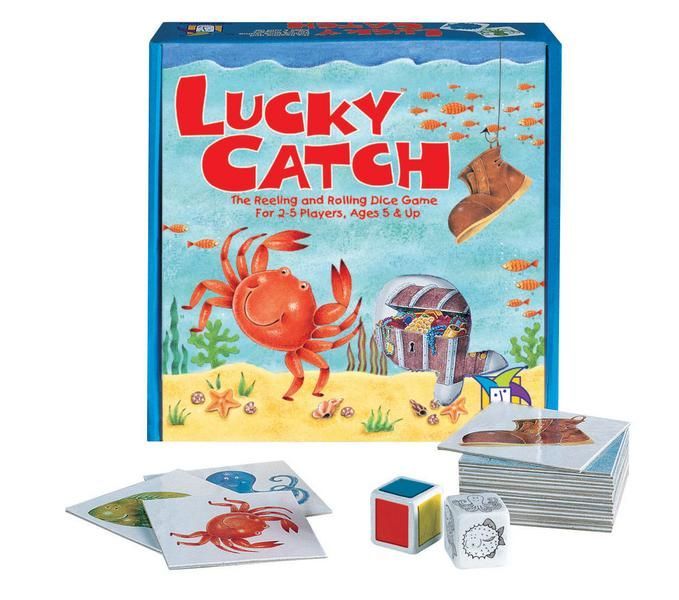Lucky Catch (1997) Board Game
Lucky Catch is a card game designed by Jürgen Heel and published by AMIGO in in 1997. It is a fun and engaging game for children that combines elements of memory, hand management, and dice rolling.
Game Components of Lucky Catch
How To Setup Lucky Catch
To set up Lucky Catch, place the game board in the middle of the playing area. Each player chooses a fishing rod and places their player token on the designated starting space. The fish and shoe tokens are distributed randomly on the board, representing the lake. Players take turns rolling the dice to determine how many spaces they can move their fishing rod.
Gameplay Mechanics and Game Objective
– Roll-and-move: Players roll dice to move their fishing rod.
– Memory: Players need to remember where the fish and shoes are located.
– Luck: Random distribution of fish and shoes adds an element of chance.
– Simple strategy: Players can try to recall where the valuable fish are hidden.
Player Experience
Lucky Catch is a very easy game to learn and play, making it perfect for young children. The game requires a good memory to avoid catching old shoes instead of fish. Players enjoy the simple yet engaging gameplay, and the short playing time of about 10 minutes keeps the game exciting and fast-paced.
Pros
Cons
Personal Thoughts on Lucky Catch
Lucky Catch is ideal for families with young children who are just starting to explore board games. It teaches basic game mechanics and memory skills in a fun and interactive way. While it may not offer deep strategy or complexity, it is a great introduction to board gaming and can be enjoyed by children and adults alike in short, entertaining sessions.
We are supported by our audience. When you purchase through links on our site, we may earn an affiliate commission, at no extra cost for you. Learn more.

